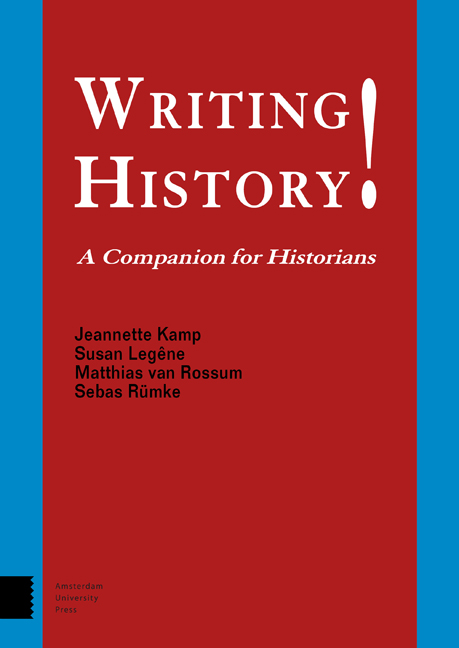Book contents
- Frontmatter
- Contents
- Introduction
- Structure of the Book
- 1 Historical Research: The Importance of the Research Question
- 2 The Building Blocks of the Historical Method
- 3 Applying the Historical Method
- 4 Writing History: Narrative and Argument
- 5 Presentation and Historical Debate
- 6 A Historian – Now What?
- Appendices
- I Guidelines for Notes
- II Other Styles of Notes
- Acknowledgements
- Index
1 - Historical Research: The Importance of the Research Question
- Frontmatter
- Contents
- Introduction
- Structure of the Book
- 1 Historical Research: The Importance of the Research Question
- 2 The Building Blocks of the Historical Method
- 3 Applying the Historical Method
- 4 Writing History: Narrative and Argument
- 5 Presentation and Historical Debate
- 6 A Historian – Now What?
- Appendices
- I Guidelines for Notes
- II Other Styles of Notes
- Acknowledgements
- Index
Summary
Historians provide insight into the past. By means of books, articles, websites, or presentations, they offer information to colleagues, students, and a wider public. In their work, historians constantly ask questions about the past, and they answer those questions by researching historical literature and sources. But how do you design a justified academic historical research project? How do you find a relevant subject, and how do you then define it? How do you formulate a good research question? Once you have your question, what are the next steps? This chapter deals with what you should take into account when setting up a research project. It addresses how a subject should be chosen, how to formulate a research question, and how to define your research in relation to the literature and source material. It also discusses how to go about organising the research, the role of advisers/supervisors, and how to handle comments and advice.
Subject and research question
Academic research is driven by various motives. It could be admiration for something beautiful or exceptional, interest in the working of certain processes, or concern about current questions. Sometimes a research question is born of the urge to show that something that is regarded as true is not so, or that it is not so simple or one-sided as it is represented by others. Curiosity, admiration, and even indignation – these are all legitimate motives. Your circumstances also influence what you find interesting, so it is important to reflect explicitly on how you arrive at a subject.
Designating a subject
When following a history programme, you might simply be given the task of writing about a certain subject. Historians also carry out research commissioned by third parties in the context of a broader research programme into which they bring their more specific interests and expertise. However, it is certainly all right to choose your research subject out of a purely personal interest if there is the opportunity to do so, for example when you write your Bachelor's or Master's thesis. In such cases, your topic could be simply a subject that appeals to you, suits your future plans, or requires certain talents that you want to develop. At the same time, when choosing a subject, you must bear in mind what contribution your research can make to the discipline or to society at large.
- Type
- Chapter
- Information
- Writing History!A Companion for Historians, pp. 15 - 32Publisher: Amsterdam University PressPrint publication year: 2018

